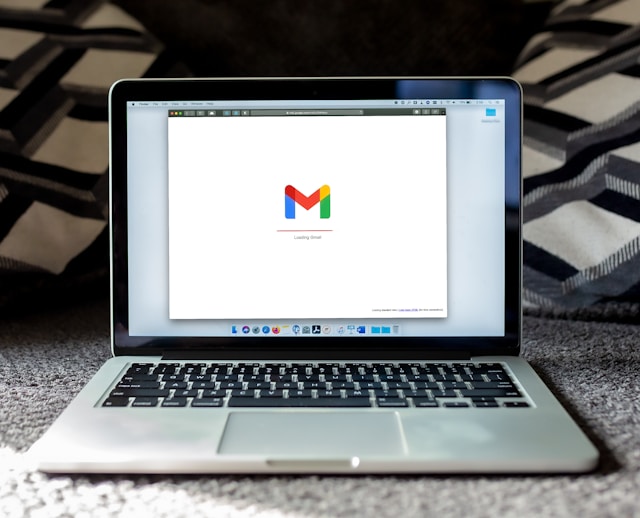Last Updated on July 18, 2024 by Richard Martin Linga
Personalized marketing is key for businesses wanting to connect with customers. In today’s digital world, it is important to tailor your marketing to meet the unique needs of each customer. This approach can boost engagement and drive sales. Also, this marketing means creating messages and offers that fit each customer. This makes them feel valued and understood. It shows you care about their needs. In other words, it can lead to higher customer satisfaction and loyalty. So, it is a powerful tool for businesses aiming to build strong relationships.
Personalized marketing helps you create content that speaks directly to your customers. For instance, using customer data, you can send personalized emails or recommend products based on past purchases. This keeps customers engaged and coming back. It not only boosts engagement but also drives sales. When customers see you understand their needs, they are more likely to buy. They are also more likely to become repeat customers. This can lead to increased sales and long-term growth for your business. By using these strategies, you can enjoy these benefits and more. Above all, it enhances your business success. For example, SEO Specialist Philippines can use personalized marketing to tailor SEO services that meet each client’s unique needs, boosting engagement and satisfaction.
What is Personalized Marketing?

Defining Personalized Marketing
Personalized marketing means creating marketing messages and offers that are unique to each customer. In other words, it is about tailoring your marketing to fit each person’s needs and preferences. This helps businesses connect with customers on a personal level. For instance, you can use customer names in emails, suggest products based on past purchases, or create ads for specific audience segments. It makes each customer feel special and valued.
Basic Concepts and Principles
The main idea of personalized marketing is to make customers feel important. This is done by understanding their behaviors, preferences, and needs. So, it requires collecting and looking at customer data. This data can come from sources like purchase history, browsing behavior, and social media activity. By using this data, businesses can create more engaging marketing messages. Therefore, it helps build stronger relationships with customers and makes their experience better.
Why Customer Data Matters
Understanding customer data is crucial for personalized marketing. This data shows what customers like and how they act. For instance, by looking at past purchases, a business can suggest products a customer might buy. In addition, knowing a customer’s browsing habits can help create ads that catch their interest. After that, using customer data to personalize marketing can lead to higher engagement and more sales.
How to Collect Customer Data
Collecting customer data is the first step in personalized marketing. You can gather data through various methods. For example, track customer purchases, monitor website visits, and use surveys. Also, social media interactions provide valuable insights. In other words, every interaction with your brand offers useful data. So, use different tools to collect and analyze this information.
Using Customer Data Effectively
Using customer data effectively is essential. It helps you create targeted marketing campaigns. For example, if you know a customer’s favorite products, you can suggest similar items. Also, tailor your messages to match their preferences. Therefore, customer data allows you to make informed decisions that improve your marketing efforts.
Understanding Customer Behavior
Customer behavior and preferences are key to personalized marketing. By knowing what your customers want, you can tailor your marketing to meet their needs. For example, if a customer often buys sports gear, you can send them special offers on related products. This makes the customer feel valued and increases the chances of them buying. Above all, it makes your customers feel understood and appreciated, leading to long-term loyalty.
Identifying Preferences
Identifying customer preferences helps create personalized experiences. Look at their purchase history and browsing patterns. For instance, if a customer frequently searches for skincare products, you can highlight these items in your marketing messages. So, paying attention to preferences helps you stay relevant to your customers.
Adapting to Changing Preferences
Customer preferences can change over time. It is important to stay updated with these changes. For example, if a customer starts buying more eco-friendly products, adjust your marketing to reflect this preference. After that, keep analyzing customer data to spot new trends. Therefore, adapting to changing preferences ensures your marketing remains effective.
Importance of Personalized Marketing

Why does it matter?
Personalized marketing is very important in today’s market. Customers now expect businesses to understand their needs and likes. When you use it, you can meet these expectations. So, it helps you connect with your customers on a deeper level. Also, it makes your customers feel valued. This can lead to higher customer satisfaction and loyalty.
Impact on Customer Satisfaction
Personalized marketing improves customer satisfaction. When customers get personalized messages, they feel like you understand them. For instance, if you suggest products based on their past purchases, they are more likely to buy again. This makes them happy with your service. In other words, happy customers are more likely to stay loyal to your brand.
Boosting Customer Loyalty
Personalized marketing boosts customer loyalty. Happy customers are more likely to come back and buy more. For example, if a customer feels special because they get personalized offers, they will choose your brand over others. After that, they may even tell their friends and family about your business. Therefore, it helps build long-term customer relationships. Using this strategy can make customers feel valued and understood.
Enhancing Customer Relationships
Personalized marketing improves customer relationships by addressing their needs and preferences. For instance, segment your audience to create tailored messages that fit different customer segments. This shows customers that you understand and value them, leading to increased loyalty. So, when you cater to customers’ preferences, they are more likely to stay loyal to your brand.
Effective Personalized Marketing
Statistics show that a personalized marketing strategy works well. Studies have found that personalized emails can increase open rates by 29%. In addition, personalized product suggestions can lead to a 26% increase in sales. After that, businesses that use thus strategy see a 20% increase in customer satisfaction. These numbers highlight the power of understanding the customer journey and catering to customer preferences.
Proven Success with Data
Data supports the success of personalized marketing. For example, businesses that segment their audience and target potential customers effectively see better results. These strategies aligned with market trends can help identify and target the right customer segments. This approach not only boosts engagement but also improves the customer lifecycle, ensuring long-term satisfaction.
Strategies for Effective Personalized Marketing

Email Marketing
Email marketing is key for personalized marketing. You can reach customers directly with tailored emails. Use customer data to personalize the content. For instance, address customers by their names. Also, suggest products based on their past purchases. Segment your email list based on customer behavior and preferences. This helps you send more relevant emails. So, customers are more likely to engage with your content.
Content Marketing
Content marketing involves creating valuable content for your audience. Personalized marketing makes this more effective. Create blog posts, videos, and other content that meet the specific needs of your customers. For example, if your audience likes fitness, write articles on workout tips. In addition, use customer data to personalize content recommendations. This keeps your audience engaged and coming back for more. Also, combining personalized content with affordable SEO strategies can help you reach a wider audience without breaking the bank.
Social Media Marketing
Social media marketing is a powerful tool for personalized marketing. Use social media platforms to interact with your customers. Share content that resonates with them. For instance, post updates about products they like. In other words, use social media to build a community around your brand. After that, engage with your followers by responding to comments and messages. This helps create a more personal connection with your audience.
Audience Segmentation
Segmenting your audience is crucial for effective personalized marketing. Divide your customers into groups based on their behavior, interests, and demographics. This allows you to tailor your marketing messages to each segment. For instance, create different email campaigns for new customers and loyal ones. So, each group receives content that is relevant to them. In addition, use data analytics tools to track customer behavior and refine your segments over time.
Creating Personalized Content
Creating personalized content is at the heart of personalized marketing. Use customer data to understand what your audience likes. Then, create content that meets those needs. For example, if a customer often buys skincare products, send them articles on skincare tips. Also, use personalized calls to action to encourage engagement. This makes your content more effective and increases the chances of conversion.
Real-World Examples
Real-world examples show the power of personalized marketing. For instance, Amazon uses personalized recommendations to increase sales. They suggest products based on what customers have bought or viewed. Another example is Netflix, which recommends shows based on viewing history. These personalized strategies keep customers engaged and loyal. Therefore, use these examples as inspiration for your own marketing efforts.
Tools and Technologies for Personalized Marketing

Email Marketing Tools
Email marketing tools are important for personalized marketing. They help you send targeted emails to your customers. For instance, Mailchimp and Constant Contact let you create and send personalized emails. These tools use customer data to tailor messages. So, you can address customers by name and suggest products based on their past purchases. In addition, these tools offer features like segmentation and automation. This makes it easier to manage your campaigns.
Customer Relationship Management (CRM) Systems
CRM systems are essential for personalized marketing. They store all customer data in one place. For example, Salesforce and HubSpot are popular CRM systems. They help you track customer interactions, purchase history, and preferences. This information lets you create personalized campaigns for marketing. Also, CRM systems can automate tasks, saving you time and effort. After that, you can focus on creating engaging content for your customers.
AI and Machine Learning
AI and machine learning are very useful for personalized marketing. These technologies analyze large amounts of data quickly. For instance, AI can find patterns in customer behavior and predict future actions. Tools like Google Analytics and IBM Watson use AI to provide insights into customer preferences. In other words, they help you understand your customers better.
Personalization Platforms
Personalization platforms help with personalized marketing. They offer tools to create personalized experiences for customers. For example, Optimizely and Dynamic Yield are popular platforms. They let you personalize website content, product recommendations, and marketing messages. These platforms use customer data to deliver relevant content. So, your customers get a personalized experience every time they interact with your brand.
Pros and Cons of Different Tools
Each tool has its good and bad points. For instance, Mailchimp is easy to use and offers many features, but it can be expensive for large lists. In contrast, HubSpot provides excellent CRM capabilities, but its advanced features may be hard to learn. AI tools like Google Analytics offer deep insights but may need technical skills to use. Personalization platforms like Optimizely provide strong personalization options, but they can be costly for small businesses.
Integrating Tools for Better Results
Using multiple tools together can make personalized marketing better. For example, integrating your email marketing tool with your CRM system lets you use customer data more effectively. In addition, combining AI tools with personalization platforms can give deeper insights and more accurate recommendations. Therefore, it is important to choose tools that work well together to get the most benefits from this strategy.
Benefits of Personalized Marketing

Increased Engagement
Personalized marketing boosts customer engagement. When customers see content that fits their needs, they pay more attention. For instance, using their names in emails makes them feel special. Also, personalized product suggestions catch their interest. So, they are more likely to interact with your brand. This keeps them coming back for more. Additionally, incorporating SEO link building can enhance your personalized marketing efforts by driving more relevant traffic to your content.
Higher Conversion Rates
Personalized marketing leads to higher conversion rates. When you tailor messages to each customer, they are more likely to act. For example, suggesting products based on past buys can lead to more sales. In other words, it helps customers find what they want. Therefore, they are more likely to buy.
Improved ROI
Personalized marketing can improve your return on investment (ROI). By focusing on what your customers need, you make your marketing more effective. This means you spend less but get better results. In addition, it helps you target your audience more accurately. So, you avoid wasting money on broad campaigns.
Brand Loyalty
Personalized marketing builds brand loyalty. When customers feel valued, they stay loyal to your brand. For instance, personalized offers show you care about their preferences. Also, regular personalized messages keep your brand in their minds. After that, loyal customers are more likely to choose your brand over others.
Customer Retention
Personalized marketing helps keep customers. When they are happy, they are less likely to switch to another brand. It keeps them happy by meeting their needs. For example, sending personalized discounts can encourage repeat buys. In addition, happy customers are more likely to recommend your brand. Therefore, it keeps your current customers and helps you gain new ones.
Long-Term Benefits
The long-term benefits of personalized marketing are big. It helps build strong relationships with your customers. These relationships lead to higher customer lifetime value. In other words, happy customers spend more over time. Also, loyal customers can become brand advocates. They can promote your brand to their friends and family. Therefore, it leads to sustained growth for your business.
Conclusion
Personalized marketing is essential for today’s businesses. It helps you connect with customers on a deeper level. So, it boosts engagement, increases sales, and improves customer loyalty. By using tools like email marketing, CRM systems, and AI, you can create personalized experiences for your customers. Therefore, personalized marketing makes your marketing efforts more effective and improves your return on investment.
Personalized marketing is important for business success. It makes customers feel valued and understood. For instance, using their names in emails and suggesting products they like builds trust. Happy customers are more likely to recommend your brand to others. So, it leads to long-term growth and success.
FAQs
What is Personalized Marketing?
It means creating marketing messages that fit each customer’s needs and preferences. It helps businesses connect with customers on a deeper level. So, it boosts engagement and sales.
Why is Personalized Marketing Important?
It makes customers feel valued and understood. In other words, it builds trust and loyalty. Therefore, it is crucial for business success and long-term growth.
How Does Personalized Marketing Work?
It uses customer data to tailor messages. For instance, it can use names in emails and suggest products based on past purchases. This makes marketing more effective.
What Tools are Used in Personalized Marketing?
Many tools help with personalized marketing. For example, email marketing tools, CRM systems, and AI tools. These tools help create personalized experiences for customers.
How Does Personalized Marketing Increase Engagement?
It shows customers that you understand them. So, they are more likely to engage with your brand. For instance, personalized emails have higher open rates.
Can Personalized Marketing Improve Sales?
Yes, it can improve sales. When customers see products that match their interests, they are more likely to buy. Therefore, it leads to higher conversion rates.
How Does Personalized Marketing Help in Customer Retention?
It makes customers feel special. Happy customers are less likely to switch to another brand. So, personalized marketing helps in retaining customers and building loyalty.
What are the Challenges of Personalized Marketing?
There are some challenges in personalized marketing. For example, collecting and managing customer data can be difficult. Also, creating personalized content requires time and effort.
How Can Small Businesses Use Personalized Marketing?
Small businesses can use simple these strategies. For instance, they can use customer names in emails and suggest products based on past purchases. These small steps can make a big difference.
What is the Future of Personalized Marketing?
The future of personalized marketing looks bright. With advancements in AI and data analytics, personalized marketing will become even more effective. So, businesses should start using these technologies now.
